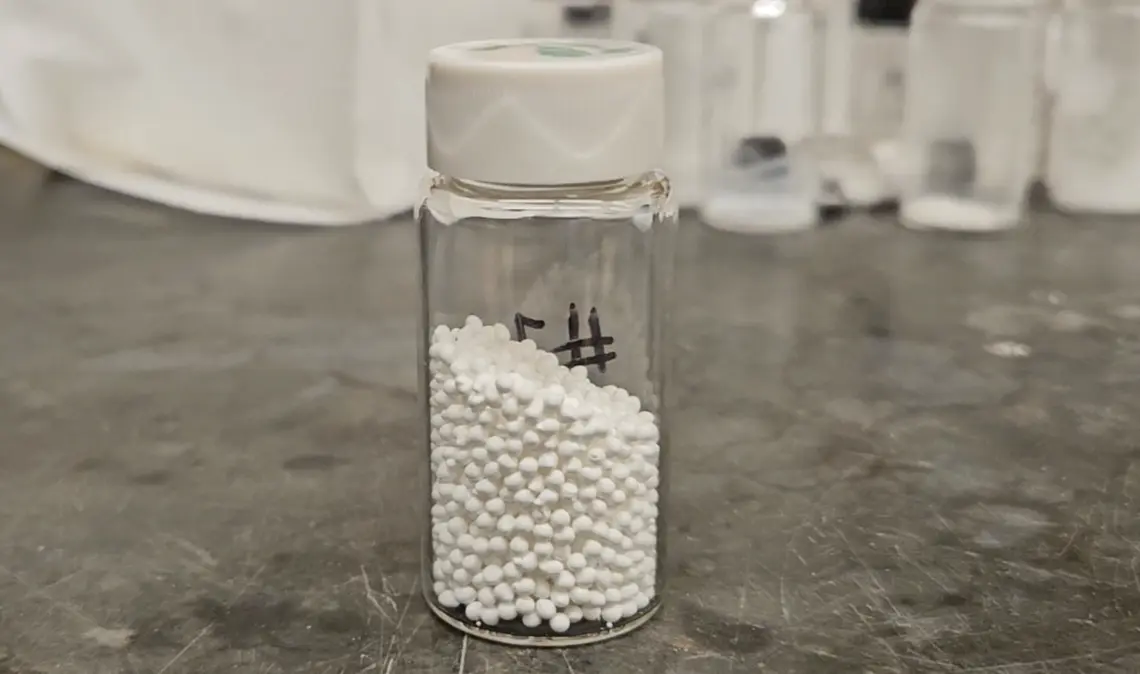Energy
How global warming saves more people than it dooms

From Energy Talking Points by Alex Epstein
This is Part 3 of a 4 part feature where I cover 4 of the top energy issues that will be discussed this summer, especially as politicians return home for August Recess.
Warmer temperatures are less of a threat than cold ones, and fossil fuels make us safer from both.
- Anti-fossil fuel politicians love summer because hot temperatures give them the opportunity to portray the world as “on fire”—and offering anti-fossil-fuel policies as a solution.In reality, cold is a bigger problem than heat—and anti-fossil-fuel policies make both worse.¹
- Anyone commentating responsibly on summer temperatures must acknowledge 3 facts:1. Heat-related deaths are far less prevalent than cold-related deaths
2. Earth is warming slowly—especially in warm places
3. Fossil fuels make us safer from both cold and heat
- 1. Heat-related deaths < cold-related deaths
When our leaders discuss the warming of the planet, they treat warming as obviously bad. But while they portray the planet as already “too hot,” the fact is that far more human beings die of cold than of heat.²
- Study after study has found that deaths from cold outnumber deaths from heat by 5-15 times. On every continent cold is more dangerous than heat. Even in many countries we think of as especially hot, such as India, cold-related deaths significantly exceed heat-related deaths.³
- 2. Earth is warming slowly—especially in warm places
So far we’ve had ~1°C of warming from a cold starting point in Earth’s history 150 years ago. Future warming will be limited by the diminishing nature of “the greenhouse effect”—as well as being concentrated in colder places.⁴
- Warming so far has been slow and benign. But will future warming make the world unlivably hot? No, given 2 facts almost universally acknowledged by climate scientists: 1) the diminishing warming impact of CO2 and 2) the concentration of warming in colder places.
- The warming impact of CO2 diminishes (“logarithmically”) as it increases in concentration.Every new molecule of CO2 we add to the atmosphere has less of a warming effect than the previous one. Warming will diminish as emissions increase—the only question is at what rate.⁵
- Climate warming is concentrated in colder areas of the world (such as the Arctic), during colder times of day, and during colder seasons.This means that future warming will occur more in cold situations where it saves lives than in hot situations where it causes problems.⁶
- All reporting on the warming of the Earth should specify not only that humans are far more endangered by cold than by heat, but also that Earth is warming slowly—and less in warm places. That virtually no reporting acknowledges this shows that much “reporting” is propaganda.
- 3. Fossil fuels make us safer from dangerous temperatures
Not only is the warming from fossil fuels’ CO2 emissions slow and in many ways beneficial, the uniquely cost-effective energy we get from fossil fuels makes us both safer from cold and heat.
- The key to being protected from dangerous temperatures is to master them by producing different forms of temperature protection, such as: insulated buildings, heating, and air-conditioning. All of these things require energy—which means for most people they require fossil fuels.
- Fossil fuels are the only source of low-cost, reliable energy that for the foreseeable future can provide energy to billions—in a world where 3 billion people still use less electricity than a typical American refrigerator.⁷
- On a planet where people die much more from cold than from heat, but both are major threats, the key to safety is to have energy be as affordable and plentiful as possible so as many as possible can afford heating and air conditioning. For now this means more fossil fuels.
- People who blaming pro-fossil-fuel politicians for hot temperatures evade that:1. Cold is more dangerous than heat
2. Warming is slow, especially in warm places
3. We need fossil fuels to protect us from cold and heat
- Reducing CO2 emissions in a humane and practical way means focusing on liberating alternatives—especially the most potent, nuclear—to try to truly outcompete fossil fuels in the future. Depriving us off fossil fuels now and pretending China will follow is immoral and impractical.
Popular links
- EnergyTalkingPoints.com: Hundreds of concise, powerful, well-referenced talking points on energy, environmental, and climate issues.
- My new book Fossil Future: Why Global Human Flourishing Requires More Oil, Coal, and Natural Gas—Not Less.
- Speaking and media inquiries
“Energy Talking Points by Alex Epstein” is my free Substack newsletter designed to give as many people as possible access to concise, powerful, well-referenced talking points on the latest energy, environmental, and climate issues from a pro-human, pro-energy perspective.
Alberta
Nobel Prize nods to Alberta innovation in carbon capture

From the Canadian Energy Centre
‘We are excited to bring this made-in-Canada innovation to the world’
To the naked eye, it looks about as exciting as baking soda or table salt.
But to the scientists in the University of Calgary chemistry lab who have spent more than a decade working on it, this white powder is nothing short of amazing.
That’s because the material they invented is garnering global attention as a new solution to help address climate change.
Known as Calgary Framework-20 (CALF-20 for short), it has “an exceptional capacity to absorb carbon dioxide” and was recognized in connection with the 2025 Nobel Prize in Chemistry.
“It’s basically a molecular sponge that can adsorb CO2 very efficiently,” said Dr. George Shimizu, a UCalgary chemistry professor who leads the research group that first developed CALF-20 in 2013.
The team has been refining its effectiveness ever since.
“CALF-20 is a very exciting compound to work on because it has been a great example of translating basic science into something that works to solve a problem in the real world,” Shimizu said.
Advancing CCS
Carbon capture and storage (CCS) is not a new science in Alberta. Since 2015, operating projects in the province have removed 15 million tonnes of CO2 that would have otherwise been emitted to the atmosphere.
Alberta has nearly 60 proposed facilities for new CCS networks including the Pathways oil sands project, according to the Regina-based International CCS Knowledge Centre.
This year’s Nobel Prize in Chemistry went to three of Shimizu’s colleagues in Japan, Australia and the United States, for developing the earliest versions of materials like CALF-20 between 1989 and 2003.
Custom-built molecules
CALF-20 is in a class called metal-organic frameworks (MOFs) — custom-built molecules that are particularly good at capturing and storing specific substances.
MOFs are leading to new technologies for harvesting water from air in the desert, storing toxic gases, and capturing CO2 from industrial exhaust or directly from the atmosphere.
CALF-20 is one of the few MOF compounds that has advanced to commercial use.
“There has been so much discussion about all the possible uses of MOFs, but there has been a lot of hype versus reality, and CALF-20 is the first to be proven stable and effective enough to be used at an industrial scale,” Shimizu said.
It has been licensed to companies capturing carbon across a range of industries, with the raw material now being produced by the tonne by chemical giant BASF.
Carbon capture filter gigafactory
Svante Inc. has demonstrated its CALF-20-based carbon capture system at a cement plant in British Columbia.
The company recently opened a “gigafactory” in Burnaby equipped to manufacture enough carbon capture and removal filters for up to 10 million tonnes of CO2 annually, equivalent to the emissions of more than 2.3 million cars.
The filters are designed to trap CO2 directly from industrial emissions and the atmosphere, the company says.
Svante chief operating officer Richard Laliberté called the Nobel committee’s recognition “a profound validation” for the entire field of carbon capture and removal.
CALF-20 expansion
Meanwhile, one of Shimizu’s former PhD students helped launch a spinoff company, Existent Sorbents, to further expand the applications of CALF-20.
Existent is working with oil sands producers, a major steel factory and a U.S.-based firm capturing emissions from other point sources, said CEO Adrien Côté.
“The first users of CALF-20 are leaders who took the risk of introducing new technology to industries that are shrewd about their top and bottom lines,” Côté said.
“It has been a long journey, but we are at the point where CALF-20 has proven to be resilient and able to survive in harsh real-world conditions, and we are excited to bring this made-in-Canada innovation to the world.”
Business
Bill Gates walks away from the climate cult

Billionaire Bill Gates — long one of the loudest voices warning of climate catastrophe — now says the world has bigger problems to worry about. In a 17-page memo released Tuesday, the Microsoft co-founder called for a “strategic pivot” away from the obsessive focus on reducing global temperatures, urging leaders instead to prioritize fighting poverty and eradicating disease in the developing world. “Climate change is a serious problem, but it’s not the end of humanity,” Gates wrote.
Gates, 70, argued that global leaders have lost perspective by treating climate change as an existential crisis while millions continue to suffer from preventable diseases like malaria. “If I had to choose between eradicating malaria and preventing a tenth of a degree of warming, I’d let the temperature go up 0.1 degree,” he told reporters ahead of next month’s U.N. climate conference in Brazil. “People don’t understand the suffering that exists today.”
For decades, Gates has positioned himself as a leading advocate for global climate initiatives, investing billions in green energy projects and warning of the dangers of rising emissions. Yet his latest comments mark a striking reversal — and a rare admission that the world’s climate panic may have gone too far. “If you think climate is not important, you won’t agree with the memo,” Gates told journalists. “If you think climate is the only cause and apocalyptic, you won’t agree with the memo. It’s a pragmatic view from someone trying to maximize the money and innovation that helps poor countries.”
The billionaire’s change in tone is sure to raise eyebrows ahead of the U.N. conference, where climate activists plan to push for new emissions targets and wealth transfers from developed nations. Critics have long accused Gates and other elites of hypocrisy for lecturing the public about fossil fuels while traveling the globe on private jets. Now, Gates himself appears to be distancing from the doomsday rhetoric he once helped spread, effectively admitting that humanity faces more immediate moral imperatives than the weather.
(AP Photo/Alex Brandon)
Stunning Climate Change pivot from Bill Gates. Poverty and disease should be top concern.
-

 Business1 day ago
Business1 day agoYou Won’t Believe What Canada’s Embassy in Brazil Has Been Up To
-

 Censorship Industrial Complex1 day ago
Censorship Industrial Complex1 day agoSenate Grills Meta and Google Over Biden Administration’s Role in COVID-Era Content Censorship
-

 Business23 hours ago
Business23 hours agoMystery cloaks Doug Ford’s funding of media through Ontario advertising subsidy
-

 Crime11 hours ago
Crime11 hours agoPublic Execution of Anti-Cartel Mayor in Michoacán Prompts U.S. Offer to Intervene Against Cartels
-

 Automotive1 day ago
Automotive1 day agoCarney’s Budget Risks Another Costly EV Bet
-

 International10 hours ago
International10 hours agoNigeria better stop killing Christians — or America’s coming “guns-a-blazing”
-

 Environment19 hours ago
Environment19 hours agoThe era of Climate Change Alarmism is over
-

 Aristotle Foundation10 hours ago
Aristotle Foundation10 hours agoB.C. government laid groundwork for turning private property into Aboriginal land

















